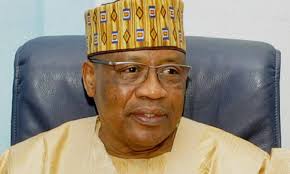The family of the late General Mamman Vatsa has strongly condemned former Military President Ibrahim Babangida’s recently released autobiography, labeling it as a book full of lies and a reference manual for criminals. The late general’s family insists that Babangida should allow Vatsa to rest in peace after executing him over an alleged coup attempt in 1986.
Vatsa and Babangida, both from Niger State, were childhood friends and confidants. However, their bond was shattered when Babangida, as military head of state, accused Vatsa of plotting to overthrow his government. A Supreme Military Tribunal convicted Vatsa and sentenced him to death by firing squad, a ruling he unsuccessfully appealed before his execution was hastily carried out.
Reacting to Babangida’s claim in his book that the execution was justified based on overwhelming evidence, Vatsa’s family dismissed the former leader’s account as fabricated. Jonathan Vatsa, a former Niger State Commissioner for Information, Culture, and Tourism and family spokesperson, held a press briefing in Minna, where he tore into Babangida’s narrative.
According to Jonathan, Babangida’s book is nothing but a compilation of distorted facts written by a man who lacks integrity. “It is not a reference book for the younger generation but a perfect guide for criminal-minded individuals,” he declared.
Visibly emotional, Jonathan Vatsa expressed deep resentment over Babangida’s continued mention of his late relative in a negative light, stating that the former military ruler had not only betrayed a lifelong friend but was still bent on dishonoring him even in death. “If Babangida has refused to let General Vatsa rest in peace, then we will remind him that even in death, Vatsa was a more honorable man because he had an identity and a home,” he said.
In a shocking revelation, Vatsa accused Babangida of altering his name from “Badamosi” to “Babangida” to fabricate a northern identity. “Where did he get the name Badamosi from? That name is not associated with the North. A man who denies his tribe and identity is unfit to lead,” he argued.
He further challenged Babangida’s credibility, pointing out inconsistencies in his account of key events, including the annulment of the June 12, 1993 election. Babangida had claimed that late General Sani Abacha was responsible for the controversial annulment, but Vatsa dismissed this as an outright lie. “If Babangida was truly in charge, how could Abacha make such a monumental decision without his approval? He admitted in the book that he was too scared to retire Abacha for fear of being killed—does that sound like a genius leader?”
Vatsa criticized those who attended Babangida’s book launch, questioning why prominent Nigerians would celebrate a man whose legacy, he believes, is tainted with betrayal and bloodshed. “No reasonable Nigerian who values democracy, which the late MKO Abiola fought and died for, should have supported such a book. This is why some Nigerians believe this country is not worth dying for,” he lamented.
He recalled that during his military trial, General Mamman Vatsa had warned that the day the Nigerian Army started insulting itself, others would join. “Through this book, Babangida has insulted himself, and surely, others will follow,” he concluded.
The controversy surrounding Babangida’s autobiography continues to generate heated reactions, with many questioning the accuracy of his claims and the true motivations behind Vatsa’s execution.

